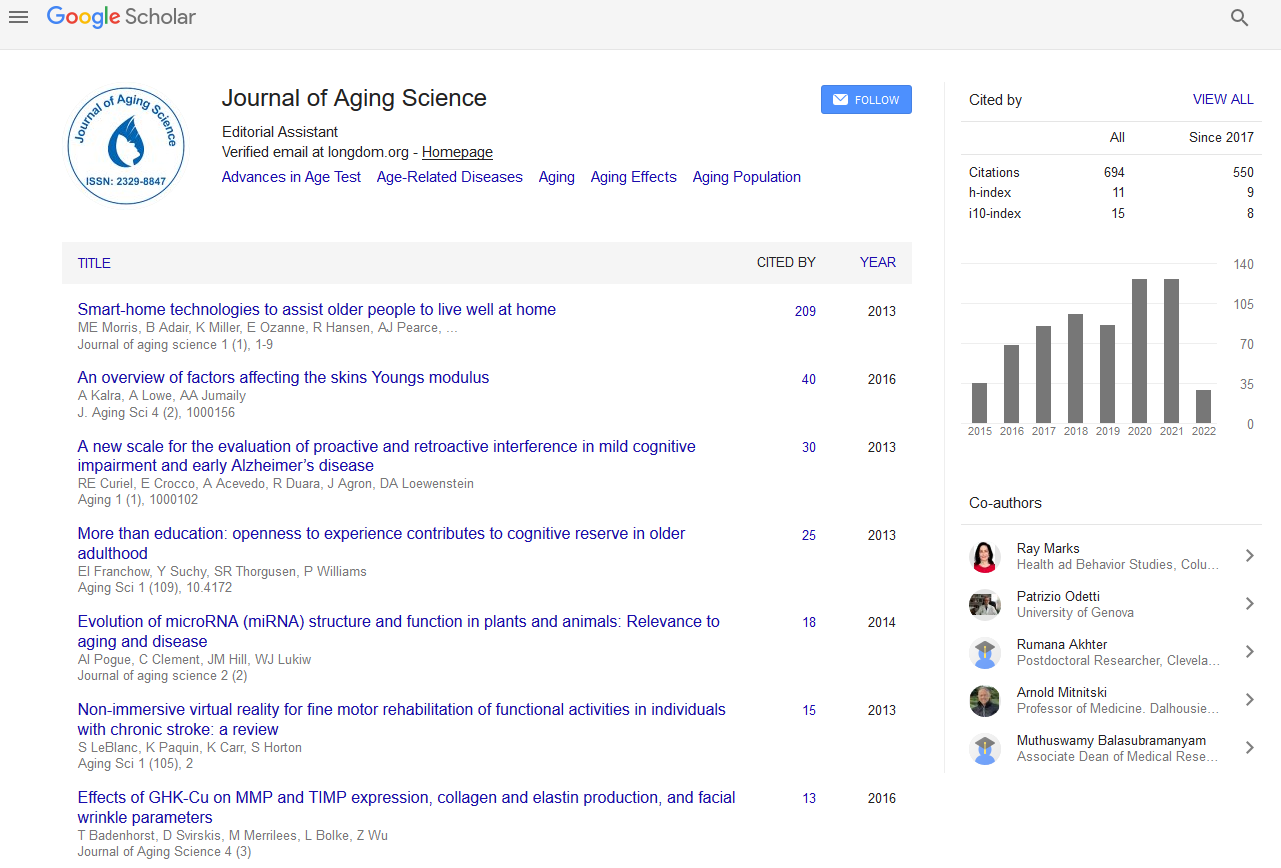PMC/PubMed Indexed Articles
Indexed In
- Open J Gate
- Academic Keys
- JournalTOCs
- ResearchBible
- RefSeek
- Hamdard University
- EBSCO A-Z
- OCLC- WorldCat
- Publons
- Geneva Foundation for Medical Education and Research
- Euro Pub
- Google Scholar
Useful Links
Share This Page
Journal Flyer

Open Access Journals
- Agri and Aquaculture
- Biochemistry
- Bioinformatics & Systems Biology
- Business & Management
- Chemistry
- Clinical Sciences
- Engineering
- Food & Nutrition
- General Science
- Genetics & Molecular Biology
- Immunology & Microbiology
- Medical Sciences
- Neuroscience & Psychology
- Nursing & Health Care
- Pharmaceutical Sciences
DEREGULATED SEPARATION OF CENTROMERE S IN ALZHEIMER S DISEASE
International Conference on Aging & Gerontology
August 8-9, 2016 Las Vegas, USA
Lada Zivkovic
University of Belgrade, Serbia
Posters & Accepted Abstracts: Aging Sci
Abstract:
Chromosomal alterations as a sign of genetic instability are a feature of Alzheimer disease. The importance of genetic instability in cells of Alzheimer disease patients that are not neurons are equally important for possible diagnostic purposes and monitoring the progress of the disease. Premature centromere division (PCD) represents a loss of control over the sequential separation and segregation of chromosome centromeres. Considering the importance of X chromosome alterations in the possible etiology of AD females, we used fluorescent in situ hybridization (FISH) for the centromere region of the X chromosome. We found a significant increase in the PCD,X in Interphase nuclei of frontal cerebral cortex neurons from sporadic AD. Considering the fact that it has been well-documented that neurons in AD can re-enter into the cell division cycle, our findings advance the hypothesis that deregulation of the cell cycle may contribute to neuronal degeneration and subsequent cognitive deficits in AD. Additionally, we also determined marked and significant increase in the frequency of the PCD,X and aneuploidy in peripheral blood lymphocytes in AD, with strong correlation between two phenomena. Therefore, our results support the view that AD is a generalized systematic disease where PCD is to be considered as a stable sign of disease leading to aneuploidy, and may be useful as a physiological biomarker that can be used for disease diagnosis.
Biography :
Email: lada@pharmacy.bg.ac.rs


